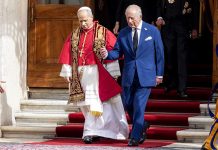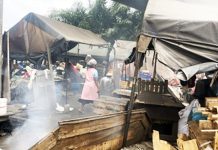These “blunt thoughts” certainly resonate with the temper of the times – an emotional reaction to what has become an endemic problem.
Which problem is a mix of economic dysfunction and self-limiting political leadership. There is despair in the air, body, and soul.
Hence, a blustery of “blunt thoughts”. The political establishment, in particular an incumbent leader, is a custodian of the public trust.
Most Ghanaians believe that our public officeholders do not conduct themselves to advance the common good. So, with a broad brush our politicians are painted as a corrupt cohort. A national malady, corruption has been rife since independence.
Nkrumah’s CPP, being the pioneer ruling political class, set a very low bar, regarding probity and accountability for the public officeholder.
This set a consequential precedence for succeeding regimes. The CPP’s conduct burdened us with the rude shock of a first mover disadvantage.
We have not recovered from that shock – despite so-called liberations, redemptions, and provisional interventions in our polity.
Whether we have been under a civilian or a military regime, our fortunes haven’t changed for the better. We remain a nation in search of its mojo. Under the fourth republic, the situation is rather getting out of control.
On the song sheet of the public officeholder, corruption is the leitmotif of that office. Unabashedly. In part, politics is seen as the surest way to achieve a measure of personal welfare and financial security.
In part, there appears to be a collective lack of societal confidence with which to construct a modern political economy, which is undergirded by credible institutions of state.
Rank corruption, though, isn’t contained within the boundaries of public office. It has been woven into the fabric of the national aesthetic.
It is the unspoken rule that consummates many a transaction – political or economic, or social. Just as in politics, the arena of private enterprise is soiled with contaminants of odious corruption. Gainers continually ratchet up the stakes, that soar ever higher.
Losers are caught flatfooted. Honesty has but no purchase, no store of value – except, implausibly, in the ethereal realms.
Such charade as is played by the avowedly ravenous, such stranglehold they exert on our struggling society.
The physical and emotional violence visited on society is seen in, say, an under-equipped public hospital, dilapidated infrastructure, a classroom under a tree, a bloated public payroll, a poorly educated university graduate, an under-resourced and underpaid university lecturer.
In all this, the poor majority have neither the locus nor agency.
Yet a national asphyxiation threatens us all. The incumbent President, Nana Akufo-Addo, has about missed the golden opportunity to treat the metastatic cancer of corruption that has ravaged our body politic, from time immemorial. This is Ghana’s sore loss.
Also lost has been a unique chance for him to have enlivened the political arena with deeds of verve. Nana Akufo-Addo assumed office, having bagged many years of public service in his favor.
A scion of the Big Six, Nana Akufo-Addo grew up a privileged child – the all too familiar crippling poverty was alien to him and his siblings. Meanwhile, professionally, he had been a very successful lawyer and an astute businessman. Politics, to all intents and purposes, could have been his take on noblesse oblige – in the lustrous footsteps of his late father.
Significantly, he entered office in the 8th decade of life – by which period many a Ghanaian, whose average life expectancy is 65 years, is dead. As an eminence gris, Nana Akufo-Addo could have pivoted the landslide victory, Ghanaian voters had ladled upon him, in 2016, towards substantive statecraft.
This would have involved rallying the country to answer a clarion call for a national renewal: the restructuring of the foundational structure of our political economy.
To elicit public sympathy for the new course of action, that he intended to chart, the President should have limited the size of his government.
This signally would have been a clear departure from what his predecessors had done, under the fourth republic.
It would have been a measure to which his party folk wouldn’t have taken a liking. (Regrettably, he caved in, under political pressure.)
But the mass of the Ghanaian people would have applauded him for a display of political valor.
Having dented the armor of patronage, which the innumerable appointments are intended to partly cater for, the President could then have deployed genuine statesmanship to initiate structural economic reforms.
Without temporizing. (All this notwithstanding, the lion may yet roar – in the next two years. For a marathon runner of a politician President Akufo-Addo has been.)
In much of the 1980s, and long before the advent of the fourth republic, in 1992, PNDC, a military dictatorship, had embarked upon substantial economic reforms, under aegis of the Bretton Woods institutions.
State enterprises were divested. Banking and financial services were deregulated. Civil service reforms were pursued with alacrity.
In one fell swoop, the military junta altered our economy from its proto-socialist demesne.
Today, Ghana has open borders, the Ghana Cedi is allowed to float within a band, and interest rates are, by and large, market driven.
International trade is the status quo. All this faithfully accords with liberal economic tenets. But there is a grand supposition.
When a nation opens its borders to unfettered international trade, it had better, in turn, deploy an ability to export massively to the rest of the trading world. This is grand supposition that shouldn’t be taken for granted.
As an example, export-led economic growth, as opposed to import-substitution economic development model, has accounted for the impressive gains in prosperity across select Southeast Asian nations- which, in the 1950s, were at similar levels of economic development as Ghana.
Source: myjoyonline.com
The views expressed in this article are the author’s own and do not necessarily reflect The Chronicle’s stance.









